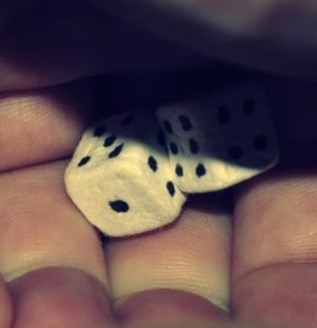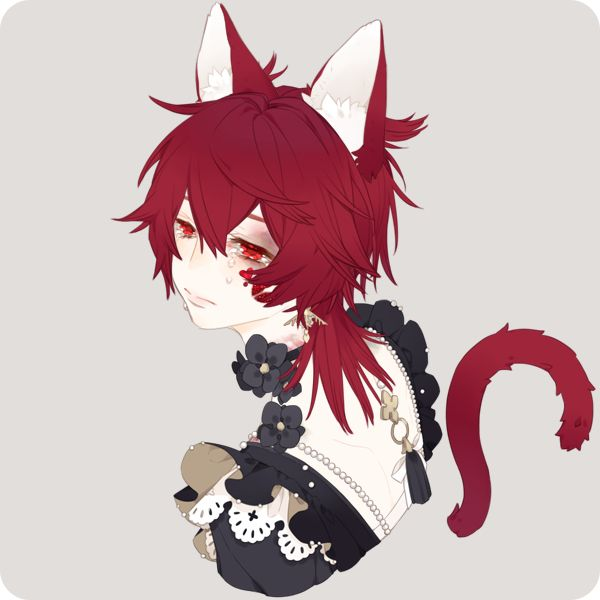By that I mean that the sheer number of coins that are expected to buy pretty much anything at mid-to-high levels is so absurd that it makes the old imagery of treasure chests full of the stuff feel not only underwhelming but burdensome.
If 50 coins equal one imperial pound, as the rulebooks typically state, you could just about melt down and hammer out a house or a boat approximating the prices in the book for such things. It gets even sillier when magic items are so obscenely priced yet at the same time a typical adventuring party picks up so many of them that they could, materialistically speaking, pull a Mansa Munsa on any quasi-medieval economy if such items are really priced that highly where a hand-me-down magic protection ring could set up a peasant in endless luxury for life.
I don’t try to fix all of that mess, but I do tend to use a house rule where coins have as much written buying power as 100x the listed prices for most things, and the coins found in a listed lair are reduced by to 1/100th of the listed values, which also keeps coppers, silvers, and electrum relevant a lot longer. As long as all the players remember the conversion tables and don’t forget them in a way that fucks up the bookkeeping, it works pretty well.
How about the rest of you? :d20:
one of the D&D 3.5 books had a whole section on how the players could effectively torpedo local economies with high value dungeon items. it listed total wealth capacity of various sized villages, hamlets, etc. so basically you would have to haul your shit to the largest capital cities or else accept very rock bottom prices or just trade for essentials and IOUs or maybe land grants. i thought it was a nice touch.
How long can an established setting, like Forgotten Realms, really continue to have those stupidly high prices for magic items when they’ve been “open for business” for centuries or longer with random adventurers digging up or looting stuff then throwing it into the local economy?
I think it’s just the dissonance of trying to shoehorn capitalist economics into a feudal setting. In most feudal societies, the money economy, in the sense of everything having a monetary value and having few barriers to exchange that commodity for money and vice versa, isn’t fully formed but coexist among different forms of exchange like barter and feudal obligations. The money economy mostly exists within the context of merchants and traders.
Some peasant finding a valuable ring doesn’t mean much if they live in a feudal society where peasants can’t own personal property, meaning anything they touch automatically belongs to their feudal landlord. The peasant can’t quickly pawn off the ring since most merchants with that amount of coin aren’t wasting time in some shitty hamlet. And if the peasant somehow flees to a medieval city in order to find a merchant to sell the ring, well many medieval cities require papers in order to actually enter in the city as a precaution towards fleeing serfs among other things, so the peasant would have to either bribe the guard somehow or sneak their way in. And once in, the merchant would almost certainly offer a price much lower than what the ring’s worth since the peasant is in a completely precarious position by virtue of being a refugee.
In a weird way, the high fantasy imagery of some adventurer standing triumphantly over a huge pile of gold coin is just another example of capitalist realism. Gold coin is just a placeholder for money, and we associate money with wealth and power because in a capitalist society with a fully formed money economy, money is wealth and power. But this is not so in a feudal society, where the source of wealth and power is not money but land. The way to make it big in a feudal society is to be created a hereditary title through faithful service to your liege. That or be a warlord who’s able to integrate to polite feudal society through a strategic loveless marriage.
A bunch of the Old School Renaissance games made the silver piece the standard so that gold was an exponent of 10 rather than the other way around. Ultimately though it’s up to the GM to control prices for things in-game and decide if something is sellable at all.
RuneQuest made the silver piece the standard of trade - and that was in 1978!
Because that’s what it was back in medieval times. No idea why medieval history freak Gygax dropped the ball on that one. Gold was only used by merchants to settle accounts amongst themselves, or by nobles to hoard wealth.
the medieval oligarchic city state of baldur’s gate rests on a peasant economy because the landlords don’t want to create a school system where a relative abundance of trained wizards cast create food and water, instantly creating a post scarcity society
the master of coin is just debasing the currency, these ‘gold’ coins have less precious metal in them than a goldfish :think-about-it:
That used to be my old headcanon but it annoyed me when I internalized the “50 coins = 1 imperial pound” note in the books, implying that the coins can’t be debased if they are considered to be solidly made of “precious” metal.
In our DnD games, different metal coins would be from different kingdoms/nations. They would all have the same value, so copper coins were much much bigger than gold coins, but ultimately 1gp = 1sp = 1cp , and the real trouble is if the seller thinks your foreign money is worth taking at that moment.
IIRC the origin of the odd pricing/weights of coins is in trying to make encumbrance matter. Nobody uses encumbrance rules anymore so you can just ignore the weights.
I don’t play D&D but in my home fantasy GURPS games we run 250 coins to the pound, 1:10:100 value for copper/silver/gold. With the alternate prices in GURPS, this makes gold feel really valuable; eg a greatsword would be 8gp, and a full set of heavy plate around 120gp, while a big gold ring that weighs 1/4lb is worth around 90gp.
It still weirds me out how a bag full of solid gold coins could set up most peasants for life, yet because of the rules as written you’d need millions of dollars worth of gold’s contemporary value to buy a small cottage or a little boat.
Clearly the default D&D setting is under the sway of extremely powerful guilds that upcharge like a motherfucker.
Having to pay for things with a thousand of something kind of makes the logic of the world break down if you look at it too closely. Like, no one is counting those, you would need scales that are big enough to fit thousands of coins to weigh them + a huge set of counterweights, and this is in a world where things like Lighten Object exist. There is no way to make commerce make sense in a way that isn’t very inconvenient to the players.
Yeah, you get what I’m saying.
“There’s banks” but that just makes the mountains of gold to buy a boat or a house seem that much more like so much heavy inconvenient mass instead of treasure.
There could be a common enchanted item that allows one to tally such quantities instantly, right? Just make it something a wealthier store will always have.
Then again, having a big set of scales would work just as well, especially if they are steel and have enchanted counterweights or something like that to not be a huge pain, but then that raises the issue of gold coins having a weight . . .
Daggerfall handles this surprisingly well by just having banks that distribute bank notes at a fee of +1% of the note’s value. That way handling paying the price of objects becomes nearly as simple in the game as it is for the players of just writing down a value.
There is no way to make commerce make sense in a way that isn’t very inconvenient to the players.
Unless the players aren’t meant to actually be carrying around the gold :graeber:
you would need scales that are big enough to fit thousands of coins to weigh them + a huge set of counterweights,
i mean you can always pay in 100 x 10 coins or 10 x 100 coins or whatever is required by the scales available. yes it’s inconvenient, but it’s not impossible like you’re making it out to be lol
The game i’m playing in now doesn’t use money at all. We’re trapped on another plane where every one is just trying to survive the extremely harsh conditions and resource scarcity so everything is based on trade with values fluctuating wildly based on what different settlements need. It’s made accumulating wealth basically impossible because it doesn’t matter how much that set of plate armor is worth because it’s never worth carrying 4 extra bulk hopping you can find someone who will not only trade for it but also has something you want.
I could go to the elemental plane of earth and find a gold nugget larger than faerun.
I it is something like the cost of several horses to make rings of infinite create food/water.
The only things of any real value in dnd are trade goods with use value. Diamonds to resurrect people, dragon repellant, healing potions
My go to method for dealing with an evil king until the DM stops me is just creating infinite food to destroy the economy and bring about falgsc
I mean, if you looks at the costs of things, ‘a cheap meal’ is usually like, 1-5 coppers. So, copper is somewhere between $1-$5, very roughly speaking. Which would put even just a 100gp magic sword (a ‘basic enchantment’) be worth around $10,000. So like, a used car? And a single gold would be like $500, in the realm of a weeks pay irl. And, a platinum piece is $5,000.
But regardless, I assume banking exists, and a lot of these ‘thousands of gold’ transactions are done via banking guilds or w/e. Its not like the US prints anything bigger than $100 today, though of course a primarily digital economy is radically different from a DnD-esque primarily gold-standard one.
Additionally, I don’t know about you, but I rarely award ‘chests full of gold’ to the players, its usually valuable items; rare gems, art pieces, or magic items themselves.
But yeah, those ‘high level magic items’ worth like, 100,000gp+, would be roughly analogous to things worth $10-100 million. Which, for 20th level adventurers fighting gods, doesn’t seem unreasonable? Like, IRL, the richest people in the world have stuff priced individually at $100million, though those tend to be like, super yachts and mansions, not a single relic sword.
Regardless, the economy is pretty clear that adventuring, even at like level 1, gives quite a bit more money than a ‘normal’ job gives, even a decent one like a smith. But also, adventuring is pretty goddamn dangerous. (And, also, the game designers kinda need that to be true, otherwise the players should just run a tavern instead of adventuring, at least until the can buy better gear.)
That day/week/month wages works clean though. The peice fits for like a legendary painting or violin in real life
If only the offline world had hundreds to thousands of dormant stashes of “legendary” paintings and/or violins just waiting for a few armed looters to wander in and take them. :thinkin-lenin:











